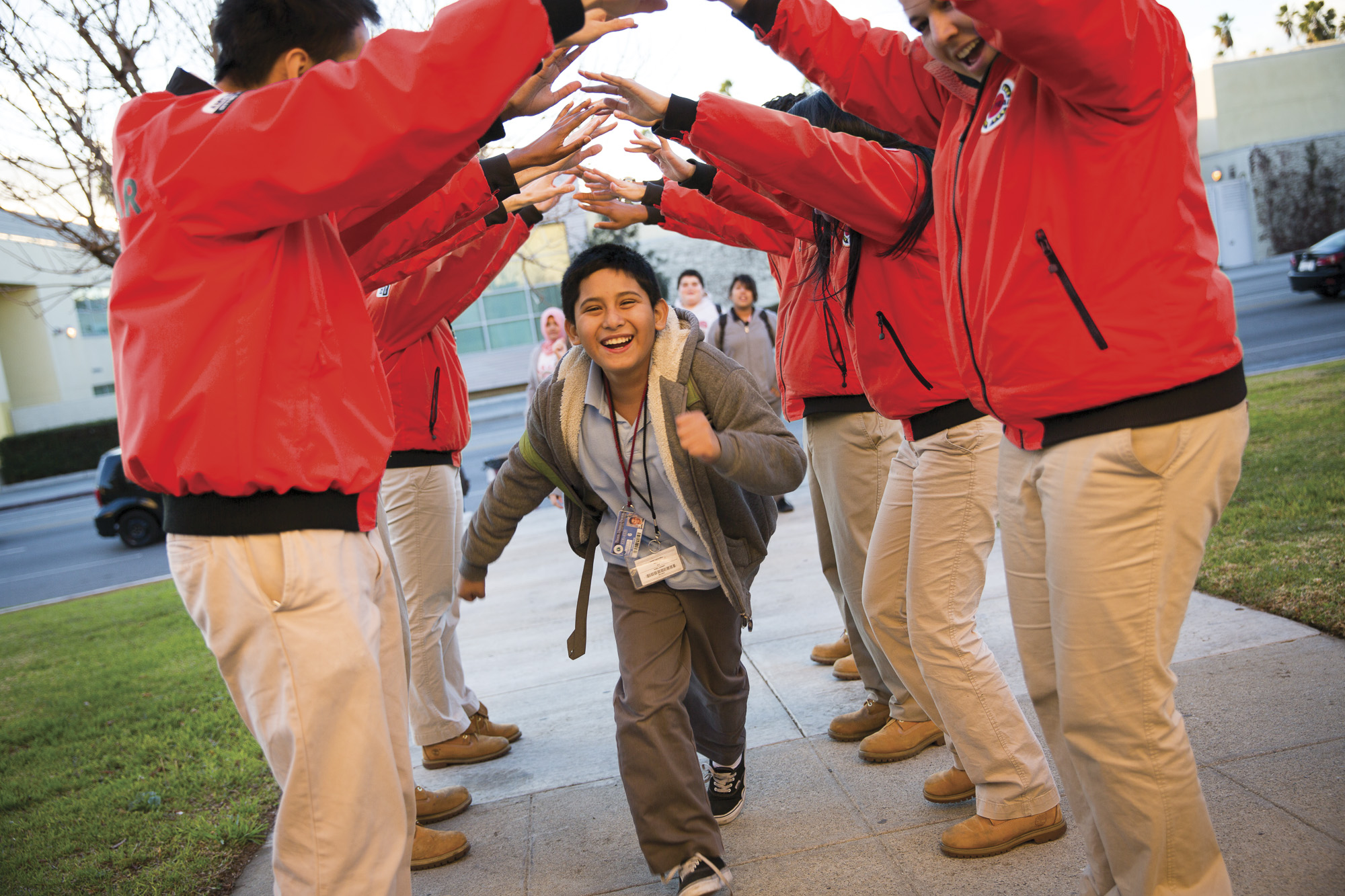
The following guest blog post was written by Jim Balfanz, President of America Forward Coalition Organization, City Year.
At City Year, we believe in young people. We believe that every child has the potential to succeed and that a high-quality education is one of the most direct and powerful ways to unlock that potential and open up pathways to opportunity. We all benefit when students are given the chance to succeed – our economy, civic life and communities prosper.
Yet, we also understand that many children in the United States, particularly those living in neighborhoods of concentrated poverty, face adversity that can interfere with their readiness to learn. These students often need additional supports, including access to positive, developmental relationships with caring adults, in order to thrive. All too often, however, high-need schools are not designed to provide these additional supports and relationships.
That’s why early results of the school improvement model Diplomas Now – the most expansive randomized control trial of U.S. secondary schools, involving 11 major urban districts, 62 middle and high schools and more than 40,000 students – represent a major step forward for all of us committed to dramatically improving outcomes for students who attend our nation’s most challenged schools. Launched in 2008 and expanded through an i3 innovation grant from the US Department of Education, Diplomas Now harnesses the expertise of Talent Development Secondary, which provides curriculum and instruction support to teachers; City Year, which provides high-impact, integrated academic and social-emotional interventions by deploying teams of trained, diverse AmeriCorps members; and Communities in Schools, which provides individual case management to students with the highest needs.
The latest report on this multi-year partnership, Addressing Early Warning Indicators, confirms that schools in high-poverty communities can reverse the trajectory of students at risk for dropping out and put them on the path to high school graduation through an unrelenting focus on preventing or reducing “early warning indicators”: low attendance, sustained poor behavior and course failure in English and math. It also highlights the critical role that AmeriCorps members play in this effort and reflects a decade-long quest of collaboration and learning among the Diplomas Now partner organizations.
Diplomas Now’s approach applies leading research, innovative human capital solutions enabled by national service, and personalized data-driven interventions to build capacity in high-need schools and, most importantly, to provide the right students with the right support at the right time, at the scale and intensity required. This model empowers adults in the building – including teachers, AmeriCorps members and case managers – to identify and support students most at-risk for dropping out by intervening in ways that help students engage with their learning, feel confident and, ultimately, succeed. Diplomas Now staff encourages students to come to school every day, take risks, try hard, and ask for help. They help students build on their strengths, connect with their school community and stay on track to graduation and positive long-term outcomes.
The study found “positive, statistically significant” impacts including:
- The number of students who enter the sixth and ninth grade transition years in high-poverty schools with early warning indicators can be reduced
- It is possible to reduce chronic absenteeism in our nation’s highest-need middle schools
The study also found strong evidence that more students in Diplomas Now schools report having positive relationships with non-teaching adults. Teachers also said they benefited, with more time to collaborate, better data to identify struggling students, and an improved school climate.
At City Year, we are applying what we are learning from our 32 Diplomas Now schools and translating those insights and practices into 313 schools in high-poverty neighborhoods across the country that our 3,100 AmeriCorps members serve every day. We understand more deeply the power of adult common planning time and data sharing to ensure that students receive adequate support and interventions. We are exploring the ways City Year can help to implement school-wide behavioral shifts, such as restorative practices, which empower students to resolve conflicts and enhance school culture. And we are learning how near-peer AmeriCorps members can help students connect their strengths to their school experience, gain many of the cognitive and social-emotional skills highlighted in Building Blocks for Learning, and stay on the path to college, career and life success.
The latest findings on the impact of early warning indicators reinforce City Year’s commitment to continue to refine, improve and expand our approach. Our goal is to ensure that even more students attending high-need schools are given supports to navigate key transitions and remain on a pathway to achieve their goals and flourish as adults.
Jim Balfanz is President of City Year, an education nonprofit that leverages young adults in national service to help students and schools succeed. Jim received a B.S. from Northeastern University, graduated from Wharton’s Business Executive Management Program, is a Pahara-Aspen Education Fellow, and serves on the boards of Mass Insight Education, Eye to Eye, Compass Academy, and City Year UK. He was recently appointed to the Aspen Institute National Commission on Social, Emotional and Academic Development as a Distinguished Educator. You can follow Jim on Twitter: @JBalfanzCY
Leave a Reply
You must be logged in to post a comment.